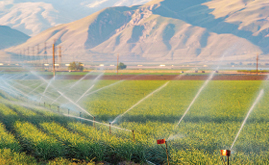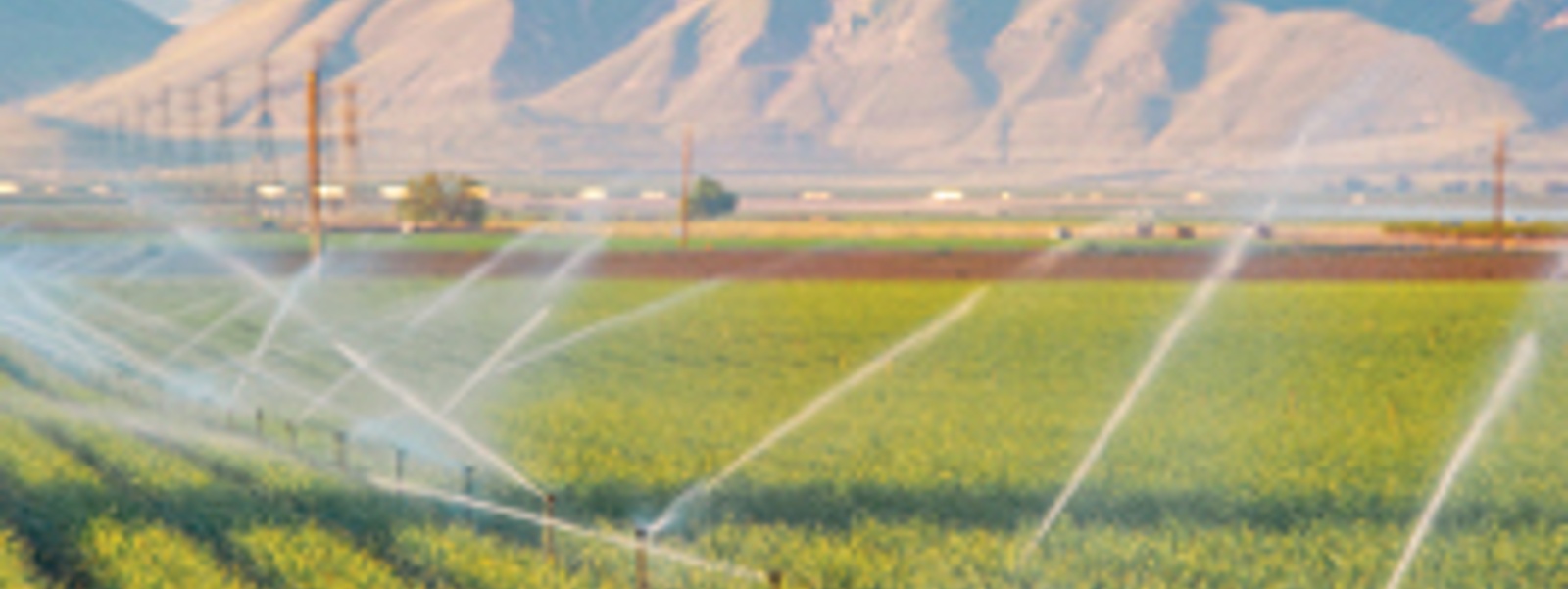Commentary: A bad bill undermines cooperation on groundwater

A San Joaquin Valley wheat field is irrigated with groundwater. The Sustainable Groundwater Management Act established a cooperative framework to protect aquifer supplies.
Photo/California Department of Water Resources

Issue Date: July 20, 2022
By Danny Merkley and Jack Gualco
The ink is barely dry on the Sustainable Groundwater Management Act and here comes more legislation to redo what has been the most significant change in California water law in over 100 years.
The California Department of Water Resources has not finished evaluating Groundwater Sustainability Plans submitted by local agencies under SGMA, which established a cooperative framework to protect California's groundwater resources. But already legislation—Assembly Bill 2201 by Steve Bennett, D-Ventura—seeks to change SGMA in ways that would bring unnecessary confusion and disruption into the process.
The bill, which passed in the Assembly and is now in the state Senate, would prohibit a local groundwater well permitting agency from approving a permit for a new groundwater well, or for an alteration to an existing well in a basin subject to SGMA, unless it receives written verification from the local Groundwater Sustainability Agency that manages the basin.
Since last amended June 22, the measure is crafted in part on Gov. Gavin Newsom's March 28 drought executive order to conserve water, including groundwater supplies. (A fact sheet to assist those navigating the order can be found at water.ca.gov/water-basics/drought).
But AB 2201 goes beyond the provisions of the governor's directive by requiring local permitting agencies to post well permit applications on their websites for at least 30 days before approving the permit.
Additionally, the legislation would require a licensed professional engineer to certify that the proposed well is not likely to interfere with existing nearby wells or cause subsidence. This has raised significant liability concerns for engineers and cost considerations for anyone seeking to obtain a permit.
The executive order has already caused significant confusion between the GSAs and local well permitting agencies. Until the administration and the department have the time necessary to sort out the many questions that have surfaced since the issuance of the order, it is premature to lock its provisions into the California Water Code by enacting Assemblymember Bennett's legislation.
Our observation is that the Department of Water Resources is working hard to find answers and to give guidance to counties and GSAs trying to understand and comply with the order, but it takes time. It also takes time to address groundwater basin sustainability, something that was made clear by the architects of SGMA at the time of its passage in 2014.
So far, the continuing, collaborative efforts throughout the state have largely drawn favorable attention of state regulators.
When the law was being debated, many questioned the ability of cities, counties, special districts, agriculture and affected community stakeholders to come together to form groundwater sustainability agencies, as well as adopt groundwater sustainability plans that the Department of Water Resources would deem to comply with the statute.
Under SGMA, a locally driven approach to managing our threatened aquifers is advancing and maturing. Yet, suddenly, AB 2201 threatens to hurl a curveball into the progress being made. The resilient and adaptive men and women who make up California's family farmers and ranchers have long overcome adversity, whether man-made or thrown at them by Mother Nature.
They would face unnecessary harms if AB 2201 becomes law, particularly with the proposed new provisions being permanently put in place, even after the drought and during times of heavy precipitation.
Small- and medium-size family farmers and ranchers and members of communities with inadequate water infrastructure are those who would be most severely impacted because they can least afford to go through the additional procedures called for in the legislation.
Local GSAs have already done the heavy lifting during the development of their plans, hiring consultants at significant expense to analyze groundwater basins and determining how to bring high- and medium-priority basins into sustainability, if they are not there already.
Additional costly studies and mandated analyses are unnecessary, and they would unduly delay the permitting process for the smallest and most vulnerable farms and ranches struggling to keep their crops alive.
California farmers and ranchers do not shy away from their efforts to put food on America's tables. Similarly, a large coalition of agriculture, local government and business interests opposing AB 2201 is now actively fighting on their behalf.
The coalition includes the California Farm Bureau and clients of The Gualco Group Inc., which advocates on behalf of water suppliers and agricultural producers.
Our coalition is working on solutions to keep water flowing to produce the most healthful food and farm products in the world. Unfortunately, Assembly Bill 2201 represents a misguided rush to fix the new SGMA law, which isn't broken.
(Danny Merkley is director of water resources for the California Farm Bureau. He may be reached at dmerkley@cfbf.com. Jack Gualco is president of The Gualco Group Inc. He may be reached at Jackson_gualco@gualcogroup.com.)
Permission for use is granted, however, credit must be made to the California Farm Bureau Federation when reprinting this item.




